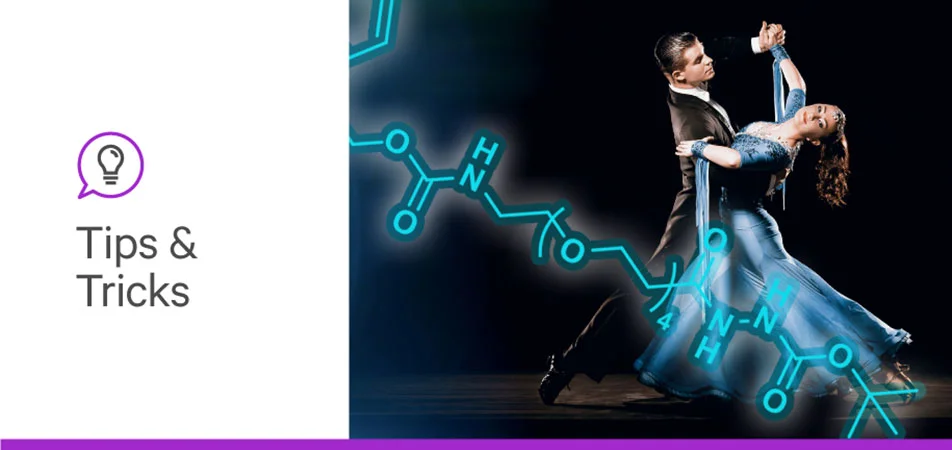
Vector Laboratories is closed for the President’s Day on Monday, February 19th. We will be back in the office on Tuesday, February 20th.
We will respond to emails upon our return. Have a wonderful day.
Menu
Vector Laboratories is closed for the President’s Day on Monday, February 19th. We will be back in the office on Tuesday, February 20th.
We will respond to emails upon our return. Have a wonderful day.
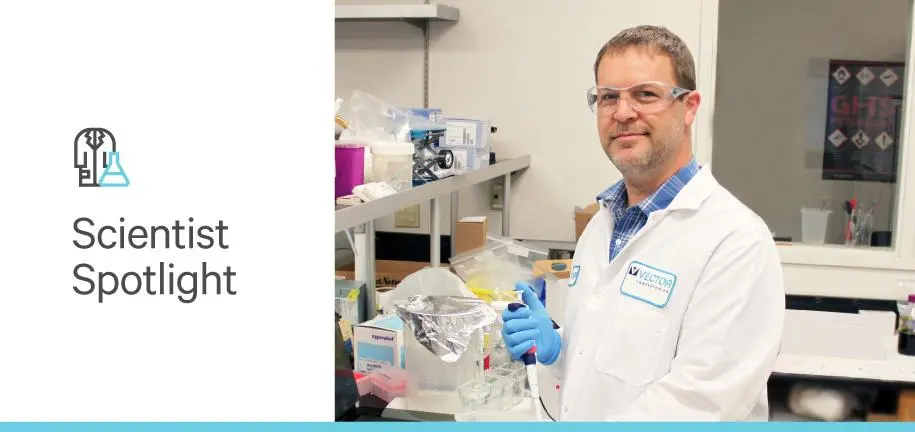
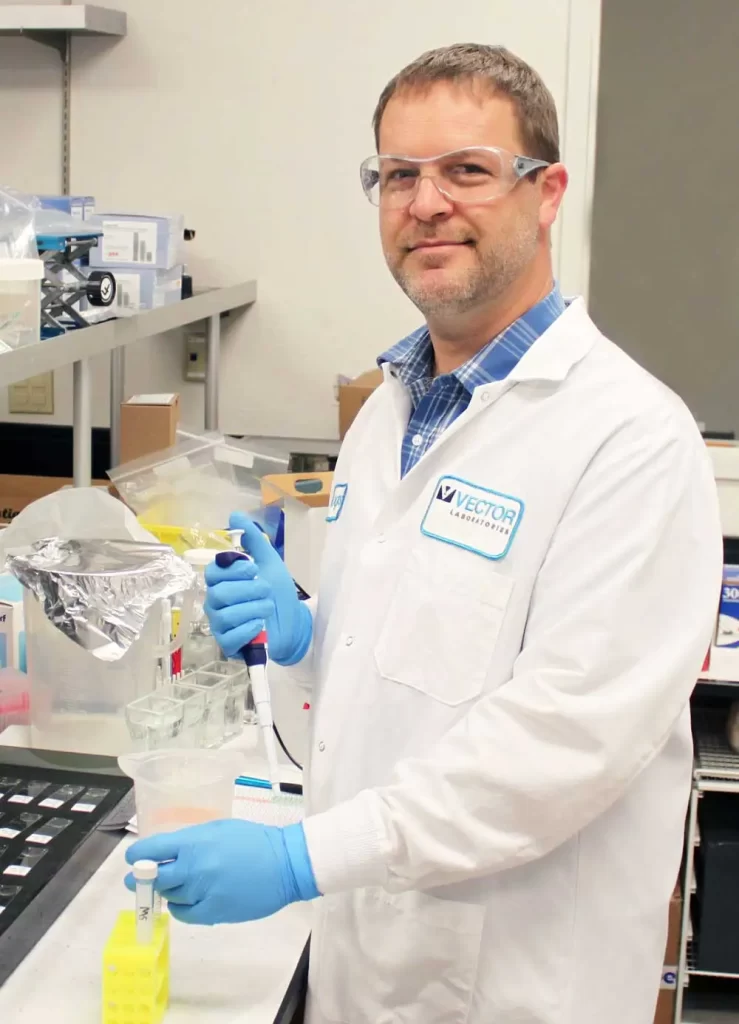
Some people realize their love for science early on. At just eight or ten years old, they are already dreaming of working with microscopes or discovering new things. They know exactly what they want to do and how they will get there. At just fifteen years old, they’re planning out how they will get into an amazing PhD program. August, ever the open-minded free thinker, was more open to where his journey would take him.
It wasn’t until high school that August got into science. During this time, he took two years of chemistry that he effectively self-taught due to the fact his teacher was teaching 3 classes at the same time. When he got to college at University of California Santa Barbara (UCSB), he realized good grades in chemistry came easily for him. There seemed to be a natural proficiency that he tapped into after undergrad. When offered the chance to be part of a new one-year master’s program at UCSB, he decided to go for it. To him, staying was straight-forward. “I was like, I get to stay in Santa Barbara for one more year and I get my masters before I have to decide what to do with the rest of my life—sure, that sounds great.” While completing his one-year masters, he got his first full-time exposure to doing research all day, every day. It really resonated with him, and he enjoyed it so much that he hasn’t looked back since.
From there he took a few months off. “I thought I was going to open a microbrewery,” August admits. “Instead, I decided to go back and get my PhD with my same professor [from the master’s program] at UCSB. I stayed there for seven years.” The focus of August’s research ended up being enzymology. “I was studying things that happen naturally in life and trying to understand how they work and why they work. The fundamental aspects that drive their evolution or their life is a pretty amazing thing. And to try and study and understand the fundamental mechanics of how it works—I find that very magical and really quite enlightening.” He loved his research so much his PI actually had to ask him to leave. “The way he kicked me out was by starting a company with him.” As with many startups, the company didn’t work out. “When the company fizzled and dissolved, it was a stressful time for me. I was doing my dissertation trying to start this company. I was managing postdocs and undergrads. I was really burning the wick at both ends, so I took a couple of years off and did sort of construction stuff. That is probably not what most people do with their PhD, but I don’t try to force myself into any kind of box—I like to be a free thinker. I took some time off and that was a good decision because I sort of think of it as a sabbatical. When I came back to science in a more professional industry-based position, I was more gung-ho about science.” He felt rejuvenated.
August proceeded to work for several startups and genetic testing companies that were nucleic acid-based, exposing him to different innovative technologies, always in the R&D based aspect of product development. In his heart, he liked proteins more than the nucleic acids he was dealing with, leading him to search for a company that would take him back into the protein world. “When Vector Laboratories came about, it sounded like something too good to be true, but it ended up working out. It was a very nice blend of protein work with dye conjugation or fluorescence, and spectroscopy.” It has now been three years since August started at Vector Laboratories, and he hasn’t regretted returning to the world of proteomics.
When asked what exactly he does here and his day-to-day, August laughed. “Well, that’s a loaded question. The goal is really to take an idea from concept to product, like bringing a sketch of a cartoon to reality. To be able to connect the dots is what I try and figure out in my day to day. A lot of it is data analysis. You try and build your experiments by being hypothesis driven. You take the results, and you build more hypotheses. Through that iterative process, on a day to day, from day to day, a year or two later, you’ve suddenly accomplished all kinds of cool stuff and you’ve been able to show how to make things work.”
As a numbers guy, data analysis is his favorite aspect of the job. “You know, I like looking at data, trying to conceptualize what’s happening in the tube from a bar graph and to design experiments that can tell you what’s going on in the tube from bar graphs. I really enjoy that sort of mystery. The thing that really got me was sort of the discovery. You know, you’re at the frontiers of human knowledge. Nobody knows the answers to these questions. You can’t go Google it, you can’t go to Wikipedia. You can’t go ask your boss. While daunting, it’s also pretty exciting. So, I like that… I like that edge!”
It isn’t just the data and science that August enjoys. “The people obviously are a big part. You know, you spend more time at work with your coworkers than you do with your family. There’s a little bit of luck probably that I feel like Vector has a very good set of people working here. The projects are well suited to my skill set and I can see how I can connect the dots. That’s valuable because I feel I am able to have a meaningful contribution.”
Unlike most positions, each day for August differs based on the various stages a product is at. “Usually these days I’m walking around, talking to other people in other departments. I talk with the R&D team so we can strategize about what types of products we want to build, what we’re going to develop, and how we’re going to accomplish that. Then I may run around making sure the shipping labels are right and the QC forms for the reagents are correct and that production knows how to make the reagents. ”
Just like any job though, the position is not without its challenges. “They say if you’re going to be a PhD, you have to be good at being wrong. You think you have an idea of how it might work. You go do some tests and you find out it’s not right. That can happen ten, twenty times in a row before you finally figure out what the answer is. It can be really frustrating sometimes when you just keep trying to figure this thing out and you just can’t figure it out. One of the things I tell people who I mentor is you really have to have the same conviction on the eleventh try as you had on the first try. Being able to persevere and being comfortable with being wrong without giving up are very real challenges. Biology and nature, it’s unforgiving—it doesn’t care if you had a bad day or didn’t get any sleep. It is what it is.”
Outside of work, August’s life is focused on his family. “I have an eight-month-old and a three-year-old and they’re busy. That’s a handful. At some point, I suspect that will change as they start to go to school and become their own people.” In addition to family, August used to play guitar, something he’s slowly trying to get back into more. “I was in a number of jazz bands. I played at Yoshi’s a couple of times, so I’m pretty into music. [In] my undergrad and graduate career, that was a huge part of my life—playing music.” He also likes ice hockey, which he jokes is why he married a Canadian lady. “I sort of tell my son there’s three things I’m going to teach him: guitar, ice hockey, and chess.”
We hope you enjoyed getting to know more about one of the great minds who work at Vector Laboratories. You can check out our other Scientist Spotlight interviews on our SpeakEasy Science blog and stay tuned for more behind the scenes.




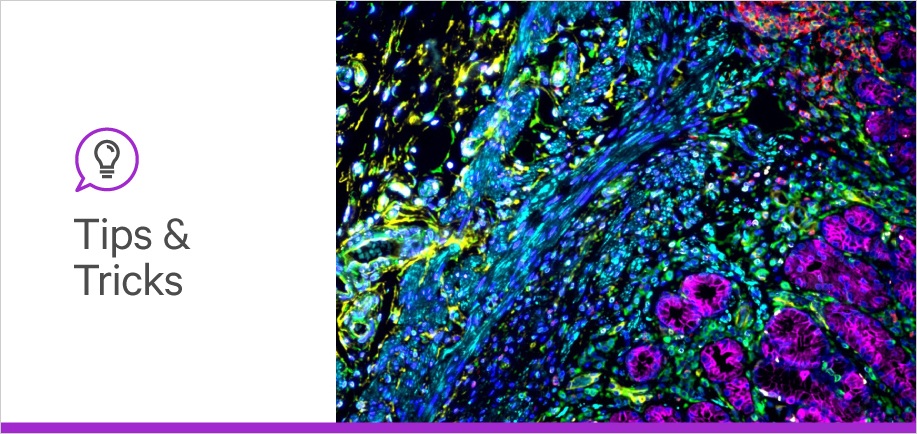
Stay in the Loop. Join Our Online Community
Together we breakthroughTM
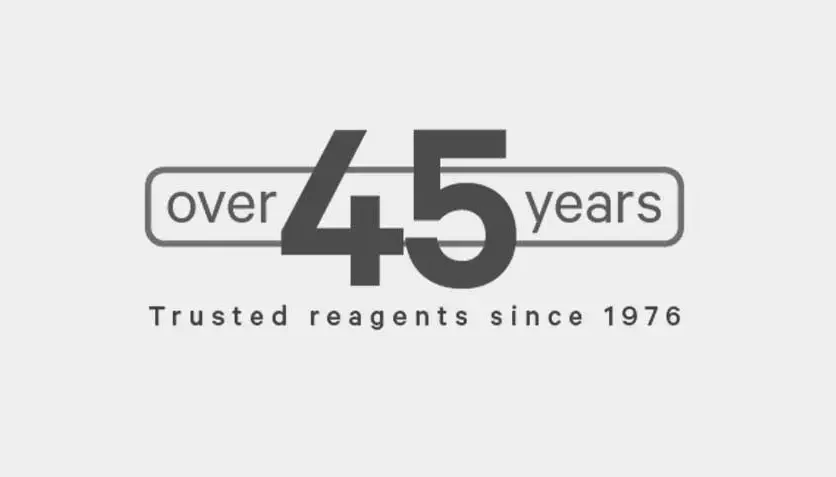
©Vector Laboratories, Inc. 2024 All Rights Reserved.